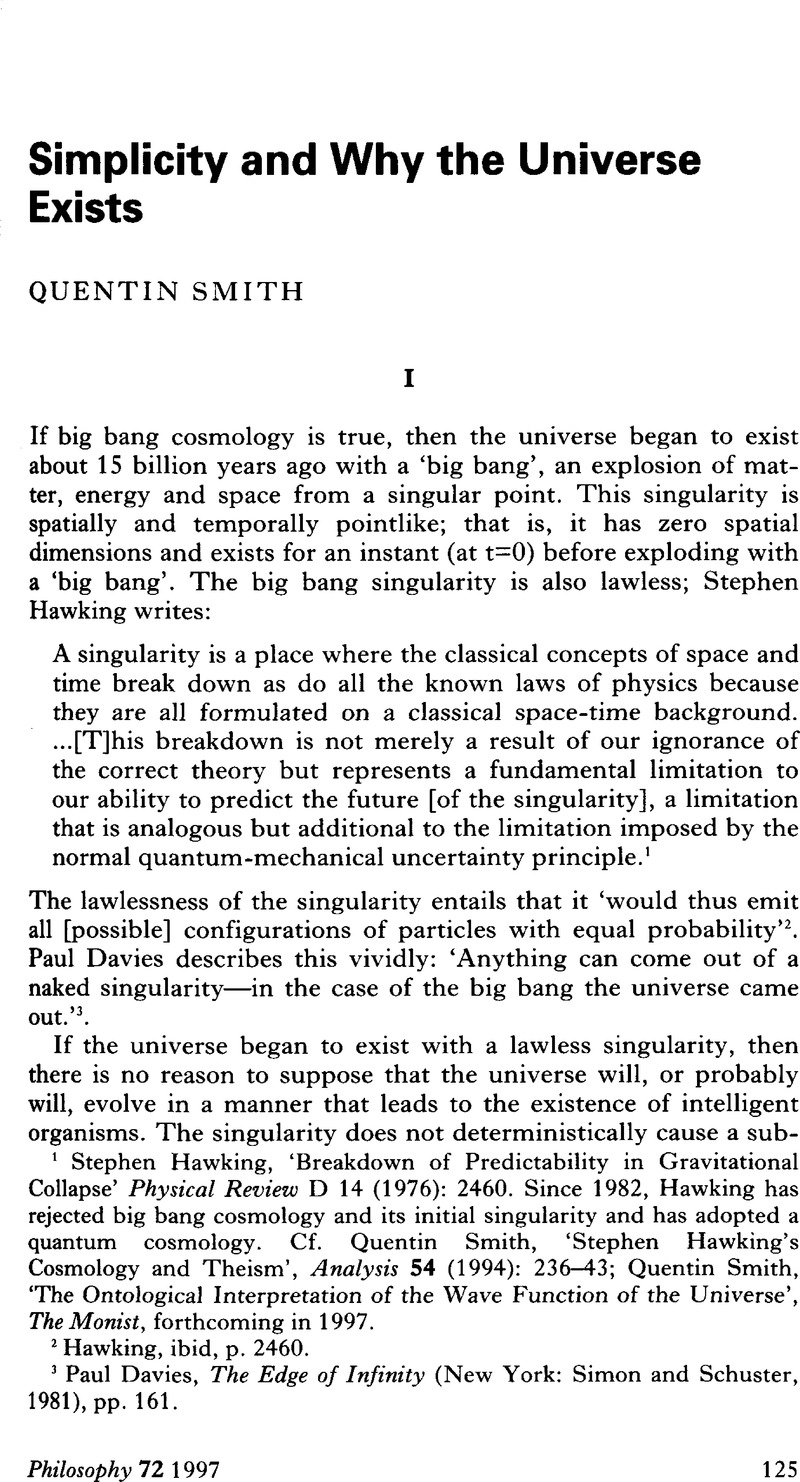Published online by Cambridge University Press: 30 January 2009

2 Hawking, ibid., p. 2460.
3 Paul, Davies, The Edge of Infinity (New York: Simon and Schuster, 1981), pp. 161.Google Scholar
4 Swinburne is mistaken when he ascribes to me the view that a divine creation requires deterministic life-producing laws. Cf. Richard, Swinburne, ‘Review of William Craig's and Quentin Smith's Theism, Atheism and Big Bang Cosmology’, The Philosophical Review 104 (1995): 337–339.Google Scholar My argument is that a divine creation requires that laws determine or make it probable that intelligent beings evolve. Cf. William, Craig and Quentin, Smith, Theism, Atheism and Big Bang Cosmology (Oxford: Clarendon Press, 1993), p. 242 and other pages.Google ScholarIn his review, Swinburne also misrepresents my argument about Hawking's cosmology presented in the last chapter of Theism, Atheism and Big Bang Cosmology.Google Scholar
5 William, Craig and Quentin, Smith, Theism, Atheism and Big Bang Cosmology, pp. 266-267;Google Scholar Swinburne, ibid.; John, Leslie, ‘Review of William Craig's and Quentin Smith's Theism, Atheism and Big Bang Cosmology’, Zygon 31 (1996): 345–349.Google ScholarJohn Leslie says a reason for divine intervention may be that it was necessary; it was an intervention that ‘God could not have avoided making’ if he wanted intelligent organisms to exist. But the ‘necessity’ here is relative to possible universes that obey our actual laws of nature. My point is that it is logically possible that there be other laws of nature (and initial conditions).Google Scholar
6 Craig and Smith, p. 267. Swinburne, p. 338.
7 Daniel, Lorca, ‘A Critique of Quentin Smith's Atheistic Argument from Big Bang Cosmology’, Philosophy 70 (1995): 48.Google Scholar
8 Craig and Smith, p. 250.